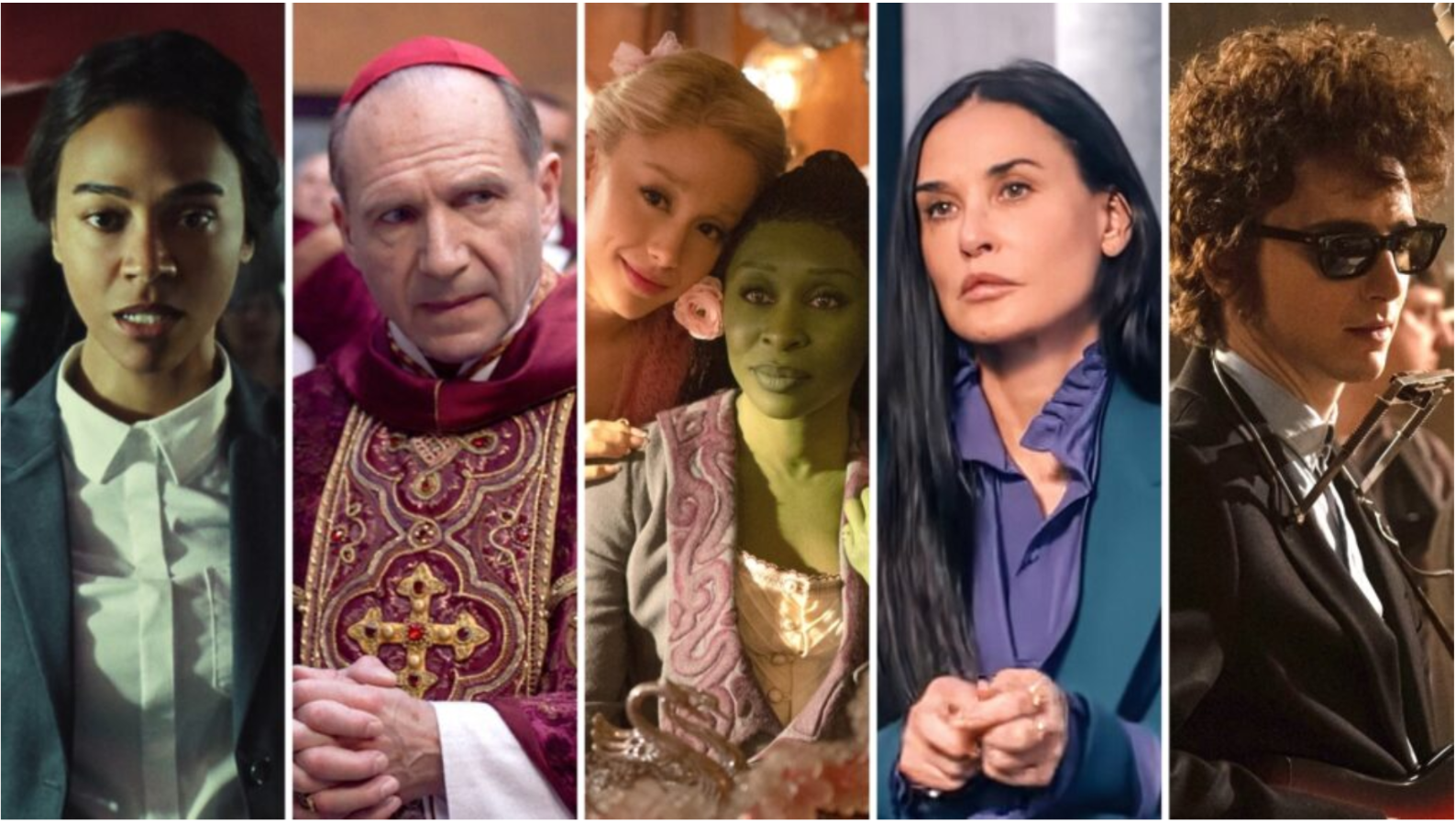By Fiona Meagher, Year 12
Millions of cinephiles and otherwise high-minded individuals worldwide were shocked and horrified on Thursday, when it was announced that S.J. Clarkson’s magnum opus Madame Webb was snubbed in every category of the upcoming 97th Oscars ceremony. Riots erupted in city streets, households were rocked and protestors- reeling in disbelief- threatened to boycott, crying out that only an entirely defunct institution could neglect a body of work such as Madame Webb, the plot of which has been called mostly decipherable to even the most Instagram Reels-watching, Subway Surfers-playing audiences.
At 14:30 UTC+1 on Thursday the 23rd of January, actor-comedians Rachel Sennott and Bowen Yang took to the stage in the Los Angeles Sam Goldwyn Theatre to announce the nominees for the 2025 Oscars. To clear up any potential confusion brought on by the previous paragraph, no one in the whole entire world was upset or surprised to see Madame Webb wasn’t mentioned. This announcement ceremony marks one of many stops on the long, winding journey towards the Oscars, widely considered the highest accolade of cinema and the definitive end of film awards season (the favorite and most sacred holiday of many individuals accused of not venturing outside their houses enough.) To some the Oscars represent the value of human creativity and masterful filmmaking, a capstone of all the most competent creations in which the audiences of 2024 could see themselves in and connect to. To others, it represents the opportunity for millionaire celebrities to put on shiny dresses, get drunk and occasionally slap each other. There’s no definitive evidence that one interpretation is superior to the other.
For the first time since 1997, the Best Director list is composed exclusively of first-time nominees. Unfortunately, this meant a win for the French, with both Jacques Audiard and Coline Fargeat named in this category. Similarly, thirteen out of twenty names in the acting categories were first-time nominees, with notable names such as Demi Moore, Sebastian Stan, Isabella Rosselini and Ariana Grande. For the fifth time in Academy history, all five Best Actress nominees are being recognized for performances in Best Picture nominated films. Among the most recognized films were A Complete Unknown, Anora, Conclave, Wicked, I’m Still Here and The Brutalist.
Somewhat controversially, Jacques Audiard’s musical Emilia Perez broke the record for nominations received by a non-english language film with a total of thirteen, four of which were in the Oscars’ six major categories. It was one away from tying La La Land for the record of most nominations ever received by any film ever. While it has been praised by filmmakers such as Guillermo Del Toro and James Cameron, who called it a “beautiful piece of filmmaking,” Emilia Perez has faced backlash due to its representation of Mexican culture and drug cartels, described as cartoonish, as well as its portrayal of transgender people. A major critique was that there were little to no Mexicans in front of or behind the camera, with the casting director saying “We looked for Mexican actresses, but none were as good as the ones we chose” to defend the casting of Spaniards (Karla Sofia Gascon) and Americans of Dominican and Mexican descent (Zoe Saldana and Selena Gomez, respectively).
This year’s notable snubs include films such as Dune: Part Two, Sing Sing, Nosferatu and A Real Pain that received little attention despite large success and critical acclaim, and completely absent films such as Luca Guadigano’s Queer and Challengers (especially mourned in the Best Original Score category), the biopic Maria starring Angelina Jolie and Pamela Anderson’s comeback film The Last Showgirl.
The Oscars have faced longtime criticism of having a lack of diversity, a bias towards biographical dramas, historical epics and melodramas dubbed “Oscar bait” and of being influenced by campaigning and lobbying- with film studios reportedly spending over 25 million to promote films to the Academy. Further critiques include accusations of symbolic awards, presented to nominees in recognition of a past snub or of their career as a whole as opposed to an individual performance, with the recent example of Jamie Lee Curtis’s much-criticized 2023 best supporting actress win for Everything Everywhere All At Once. While she has had a lengthy and iconic career, she had a (for lack of a better word) un-meaty role in the film, especially compared to Stephanie Hsu whom she beat out in the category. The legitimacy of these claims is up to the reader’s interpretation, but there is an undeniable, inherent conflict of film award ceremonies in general: that cinema is art and art is subjective. No two people will ever interpret films the exact same way, making a definitive naming of “best picture” or “best director” or even “best hairstyling” effectively impossible.
Still, in a world increasingly full of Netflix originals, incoherent cinematic universes, AI-generated art and Madame Webbs, it’s impossible to overstate the importance of celebrating creativity and devotion to filmmaking. An inescapable fact of life is that when art stops mattering, humans stop mattering. There is therefore undeniable value in holding stupid, frivolous parties that acknowledge creatives striving to make fabulous, beautiful art and hand them little golden buff-guy trophies that say “You matter! The things you put out into the world matter!” As long as the greatness of film is widely celebrated, filmmakers will continue striving for it, and society will be better equipped to resist soulless content produced by corporate executives who confuse marketability with the true, essential quality of a film: its humanity.
The moral of the Oscars and other such ceremonies seems to annually become clearer: the ideal approach is not to greet them with apathy, disdain or reverence, but with complete inconsistency. Care enormously when films you like succeed, and loudly call the ceremonies fraudulent when movies you hate win. Judge the priceless formalwear of millionaires in your pajamas. Develop very passionate feelings about films you’ve never seen and never plan on seeing. When an institution names Top Gun: Maverick (2022) as one of ten of the most masterfully crafted films of a whole year, we as an audience lose any responsibility to take it too seriously.



